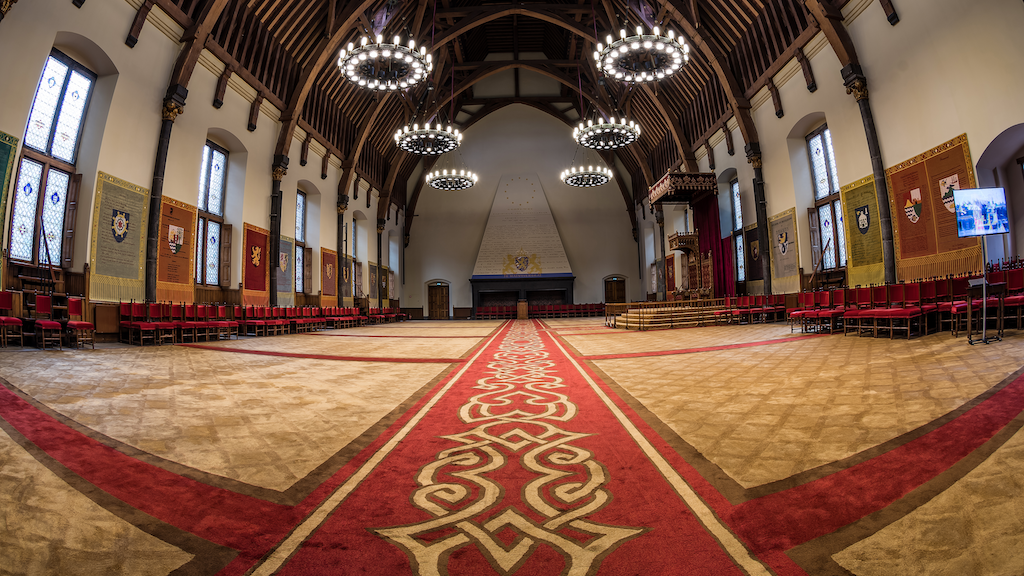Where is the Church?
A question that has been haunting me for many years is: “Where was the Church”? Today the question that is constantly on my mind is: “Where is the Church”? And that leads to a final question: “Where will the Church be”?
On 25-26 June 2019, I had the privilege to speak at the Jerusalem Prayer Breakfast conference in The Hague. The theme of this meeting was: Anti-Semitism. Christian, Jewish and secular leaders came together to speak out publicly against the rise of anti-Semitism in Europe today, and reaffirm the importance of the Jewish people.
The opening session took place in the very impressive ‘Ridderzaal’ (‘Hall of Knights’) of the Dutch Parliament. Originally built in the 13th century, in a way this impressive building personifies European public life. Each year, the Dutch monarch delivers a speech in this place to the Parliament. This is the very location in which the Nazi leadership installed the Austrian Arthur Seyss- Inquart as Reichskommissar in Nazi-occupied Netherlands in 1940, leading to the slaughter in the next few years of over 70% of the Dutch Jewish population in the Nazi concentration camps – the highest percentage in Europe. So it was highly significant that the Jewish people could be honoured here, eighty years later.
Europe has an appalling history of anti-Semitism. Just read Simon Wiesenthal’s book: Every Day Remembrance Day: A Chronicle of Jewish Martyrdom. This chilling calendar of horrors brings together over a thousand entries detailing atrocities committed against Jewish people over the past 2000 years. Items from diverse centuries are clustered under the dates on which they occurred: on August 23, for instance, we find the massacre of the Jewish population of Koric Ukraine in 1648, and a Gestapo shooting of 16 Jews in 1942.
One day a Jewish rabbi answered her: “Maybe even after Auschwitz I still can believe in God, but I cannot believe in Man anymore.”
Often the question is asked: “Where was God”? One of the leading ‘God is dead’ theologians once said: “Since Auschwitz, I cannot believe in God any more. At least, not in a concept of God as a personal reality Who is involved in the history of this world”. One day a Jewish rabbi answered her: “Maybe even after Auschwitz I still can believe in God, but I cannot believe in Man anymore.”
My question after 2000 years of Christian anti-Semitism is not: ‘Where was God’? But my question is: ‘Where was the Church when the Jewish people needed her’?
One of the most famous Dutch theologians Dr Hans Jansen (1931-2019) once said: “The verbal attacks and boycott calls by a variety of Western Protestant, mainly liberal, denominations, as well as the World Council of Churches, have raised new interest in the origins of Christian anti-Semitism and in particular its Protestant version.
“Among the Protestants’ founding fathers, Martin Luther was particularly anti-Semitic. His writings were precursors of twentieth-century National Socialist texts. Adolf Hitler, Joseph Goebbels, and Julius Streicher gladly quoted from Luther’s works, even if he never recommended the physical destruction of the Jews. Luther did, however, advise burning synagogues in honour of God and Christianity, confiscating Jewish books, and expelling Jews from Christian countries. In 1985, the World Federation of Lutheran Churches distanced itself from these statements of Luther.
Other sixteenth-century Protestant reformers such as John Calvin, Ulrich Zwingli, and Philipp Melanchthon also considered Judaism archaic but were against drawing operational conclusions from this. Another reformer, Martin Bucer, took a more favourable position toward the Jews – that is, to support the Jews.
Now that anti-Semitism is rearing its ugly head again today, my question is: Where is the Church? What is the Church doing to counter anti-Semitism?
I suspect that in the current anti-Israel positions of liberal Western churches, non-theological influences are probably more important than theological influences. Blaming Jews is for many of them a question of protecting their own spiritual welfare and of avoiding having to look into the mirror at our own past.
For several decades there has been in many Jewish circles the impression that Christian anti-Semitism was declining and would fade away in the course of a generation or two. This perception stemmed mainly from the major post-Holocaust policy change by the Roman Catholic Church in its attitude toward the Jews. But the churches have taught antipathy to Jews for two thousand years. It is a mistake to think this can be overturned in a few decades. The new expressions of Christian hatred toward Israel reflect deep psychological processes. Somehow, aversion to Jews (and therefore aversion to a Jewish State) is ingrained in our thinking in Europe.
My question after 2000 years of Christian anti-Semitism is not: ‘Where was God’? But my question is: ‘Where was the Church when the Jewish people needed her’?
So my concern is: Where will the Church be tomorrow when the Jewish people need our help? This is a real, existential question for the Church. Jesus will ask us when He comes back in glory as it is written in Matthew 25:31-46. “When the Son of Man comes in His glory, and all the angels with Him, He will sit on His glorious throne. All the nations will be gathered before Him, and He will separate the people one from another as a shepherd separates the sheep from the goats. He will put the sheep on His right and the goats on His left…
Then He will say to those on His left, “Depart from Me, you who are cursed, into the eternal fire prepared for the devil and his angels. For I was hungry, and you gave Me nothing to eat, I was thirsty, and you gave Me nothing to drink, I was a stranger, and you did not invite Me in, I needed clothes, and you did not clothe Me, I was sick and in prison, and you did not look after Me…
Truly I tell you, whatever you did not do for one of the least of these brothers of Mine, you did not do for Me. Then they will go away to eternal punishment, but the righteous to eternal life.”





